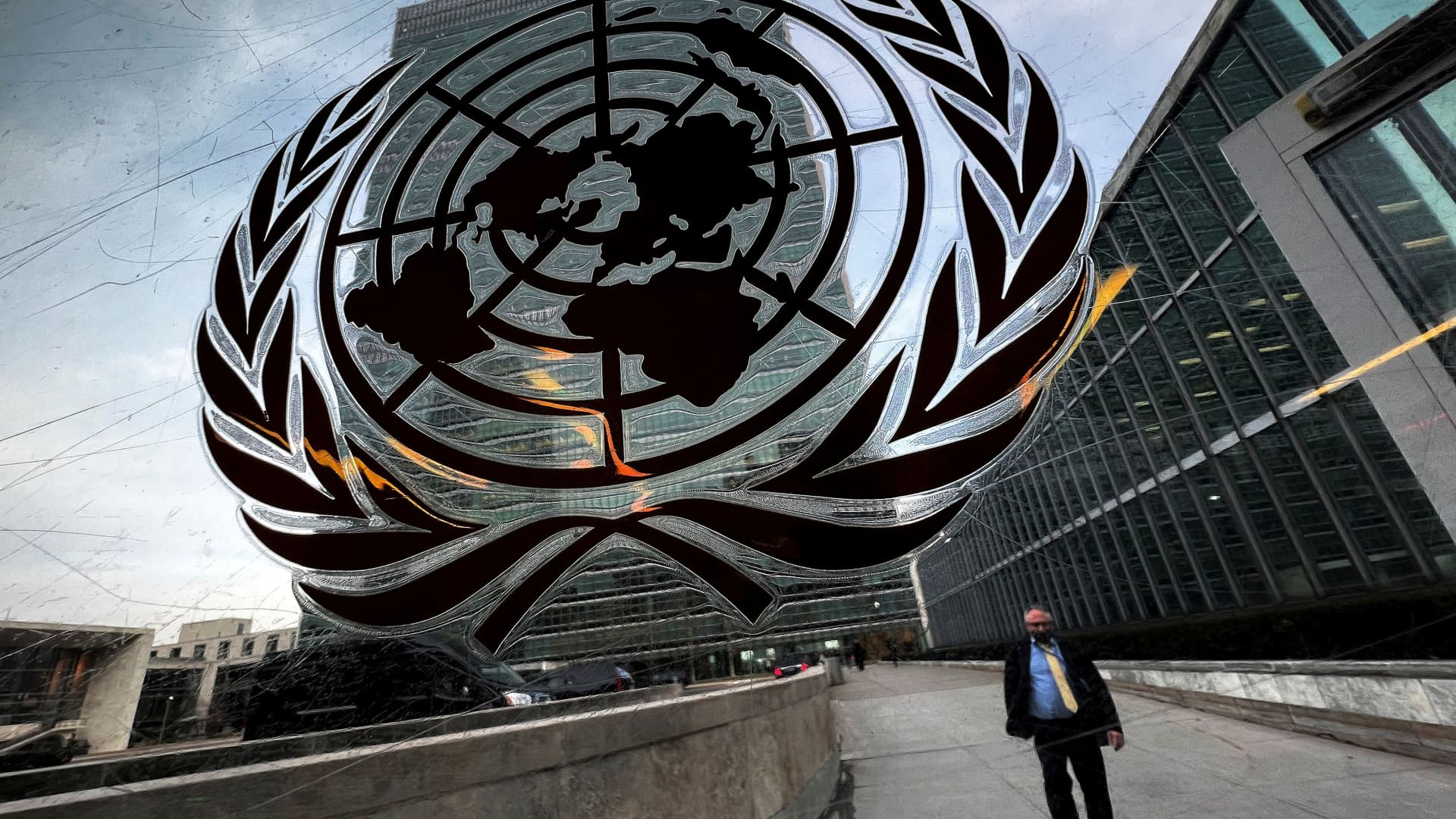The United Nations deputy secretary-general has told CNBC there will be “lessons learned” from the war in Ukraine.
Speaking Wednesday after the release of the U.N’s “2022 Financing for Sustainable Development Report,” Amina Mohammed said the Russia-Ukraine crisis had been “a big shock to the system.”
Asked if the world could have done more to stop the war before it began, Mohammed said “hindsight is 20-20 vision.”
“Of course, there are things that we could have done to stop the war, but perhaps those are going to be lessons learned again, when the Security Council, the General Assembly leaders will look back and say, ‘what could we have done, and make sure that we prevent the next war, the next pandemic’. These are all things that we are learning. I think history tells us that we’re not very good learners when it comes to that,” she said.
“I think that this was so unimaginable, unexpected, that we’d have this kind of a war in Europe, you know, 75 years later, I think has been a big shock to the system. So, I hope that the learnings will find ways to make us more accountable to put in the checks and balances that this doesn’t ever happen again, and that we are working towards peace.”
Mohammed, who previously served as Nigeria’s minister of environment, also chairs the Global Crisis Response Group on Food, Energy and Finance, set up by U.N. Secretary-General António Guterres to look at the wider impact of the Ukraine war on the “world’s most vulnerable.”
Trip to Moscow
Guterres traveled to Moscow this week to meet with President Vladimir Putin for the first time since Russia invaded Ukraine. He also met with Ukraine President Volodymyr Zelenskyy on Thursday in Kyiv. Russian is one of five nations that hold a veto power on the U.N’s Security Council.
Guterres agreed with Putin on an evacuation route from the besieged city of Mariupol, but his trip came amid criticism that the U.N. Security Council has only managed to play a limited role during the Russia-Ukraine crisis.
Indeed, Zelenskyy called for reform in an impassioned speech to the Council in April. Mohammed said it was an issue that Security Council member states had been “grappling with for a very long time”.
“And I think they will continue to address that, and there are conversations and resolutions that will be put forward to see how one can do better than we have been able to do and to put in the checks and balances to protect the [U.N.] Charter. That’s the most important thing. The Charter that promises the people that we would not see a war again, as we did in World War II,” she said.
Mohammed became U.N. deputy secretary-General in 2017 and was reappointed in January 2022.
Asked how relevant she thinks an organization like the United Nations is to the world today, she said she understood outside frustration toward it.
“If we didn’t have the U.N. today, we’d have to recreate it tomorrow. It is the global townhall for our global village. We are so interconnected today that that’s not going to change,” she said.
“And we need a space where we can come and we can speak to the issues, human rights, our development, our conflicts, and you know, some days we’ll have a voice that’s loud and some days, it’s not very loud. Some days we will make movement, some days we will not, but the most vulnerable of countries needs this space.”
‘Great finance divide’
Mohammed, who is also chair of the United Nations Sustainable Development Group, recently presented the “2022 Financing for Sustainable Development Report” — a joint effort from the Inter-agency Task Force on Financing for Development, which includes more than sixty United Nations Agencies and international organizations.
The report highlights a post-pandemic “great finance divide,” with poorer countries unable to raise enough funds or borrow affordably for investment, making them unable to invest in sustainable development or respond to crises.
“We’re facing sort of a multitude of crises, the climate, the pandemic, and now the war in Ukraine, and the financing piece of this really just comes to demonstrate how the recommendations over the years are even more needed today. And you’ll see that some of those recommendations speak to the framing around the financial divide that we see in the world today,” Mohammed said.
“So many of the recommendations are about access to finance, they’re about better tax systems, they’re about addressing illicit financial flows, but they’re also about taking cognizance of the debt that is mounting, and the crises that is exacerbating it.”
Mohammed originally joined the U.N. in 2012 as special advisor to former Secretary-General Ban Ki-moon and led the process to establish the 2030 Agenda for Sustainable Development and the creation of the Sustainable Development Goals.
She said she was “extremely worried” about the current global financial situation and that “there’s not enough recognition that the urgency and scale of the investments that need to happen right now, should happen.”
